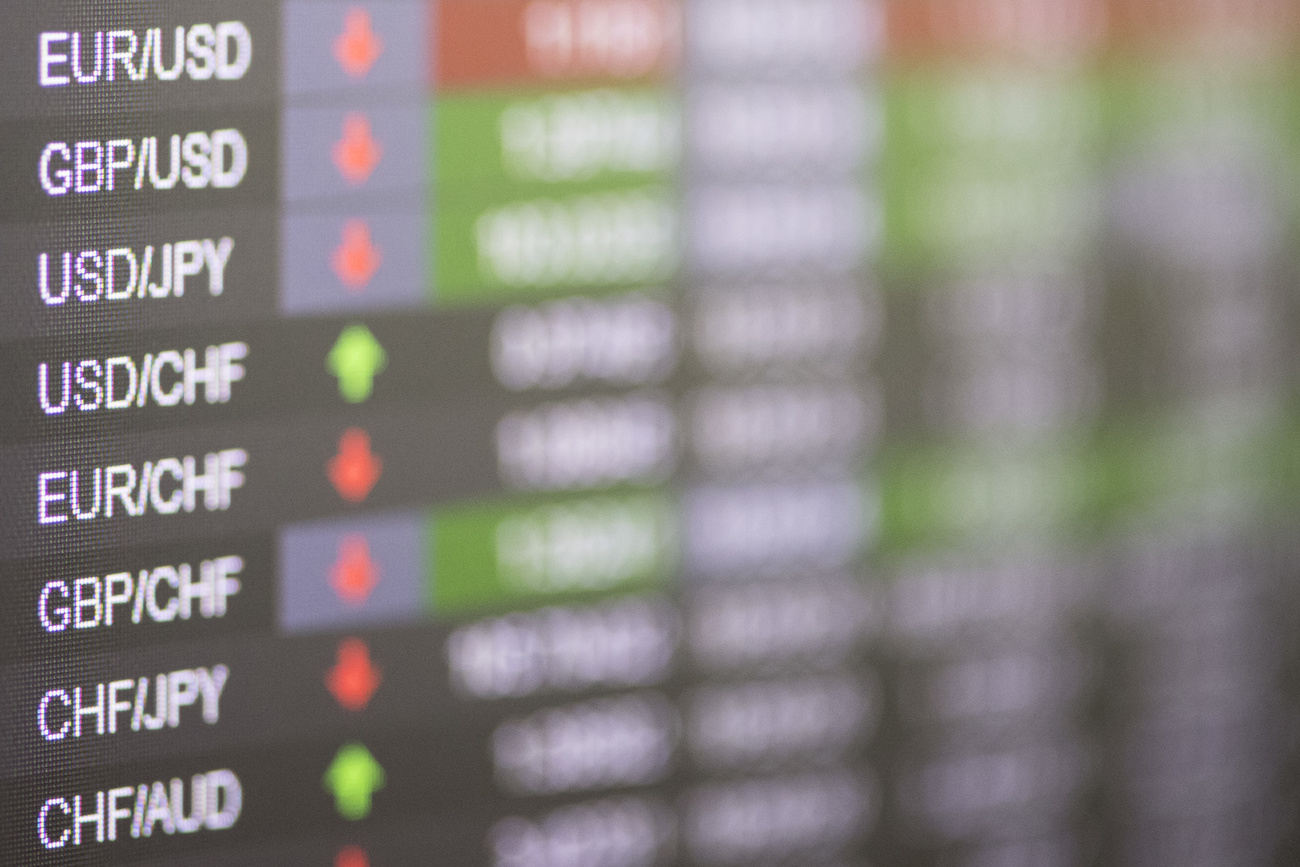
SNB stayed out of FX markets despite third-quarter franc rally

The Swiss National Bank (SNB) continued to refrain from significantly influencing the franc in the third quarter of 2024, even as the currency saw a rally triggered by geopolitical turmoil.
+Get the most important news from Switzerland in your inbox
Switzerland’s central bank bought foreign exchange worth CHF728 million ($806 million) from July to September after even smaller purchases in the previous two quarters, according to data on Tuesday.
This suggests that even though the franc appreciated some 2.5% against the euro during the period, Swiss officials didn’t see much reason to intervene and instead trusted that interest-rate cuts would yield a sufficient effect. That hypothesis is backed up by the fact that the central bank unexpectedly went for a more severe half-point move earlier this month.
+ Read more: SNB makes surprisingly hefty cut to key rate
By selling some of its own reserves in foreign denominations, the central bank can strengthen the exchange rate. In 2022 and 2023, it boosted the franc in this way to dampen domestic inflation by making imported goods cheaper.
For several years before that, it had used the mechanism in the opposite direction to keep a lid on the currency. This has seen the SNB’s balance sheet grow to a size some observers deem dangerous as it can yield large losses.
Currently, officials refuse to comment on whether the franc is over- or undervalued. The institution maintains that the interest rate is its main tool, but that currency interventions can happen in both directions.

More
A blessing and a curse: the strength of the Swiss franc
With one of the world’s lowest rates, however, the SNB has limited scope to keep reducing it in any extended confrontation with the foreign-exchange market. Some economists therefore expect that it will switch to buying currencies when it exhausts its space for lowering borrowing costs.
Any such move risks putting it on the US’s radar just after Donald Trump’s return to the White House. Last time he was in power, Switzerland was classified as a currency manipulator, though that label was subsequently removed.
The SNB publishes a tally of its transactions on a quarterly basis and with a three-month delay. Data for the period from October to December are due on March 31.

In compliance with the JTI standards
More: SWI swissinfo.ch certified by the Journalism Trust Initiative






























You can find an overview of ongoing debates with our journalists here . Please join us!
If you want to start a conversation about a topic raised in this article or want to report factual errors, email us at english@swissinfo.ch.